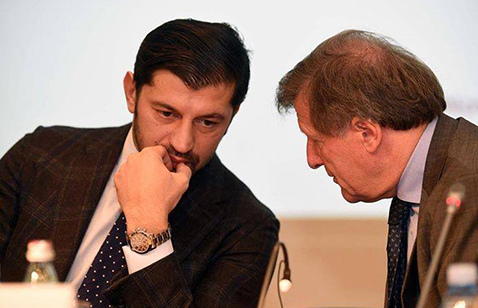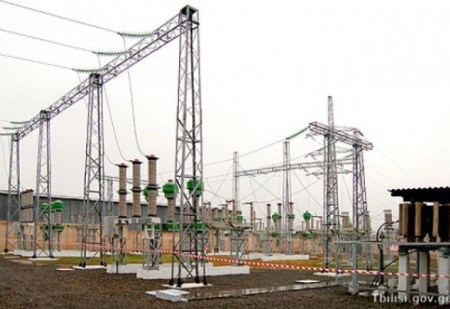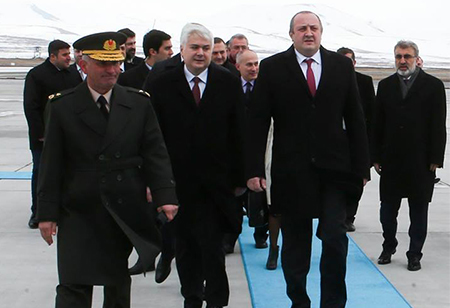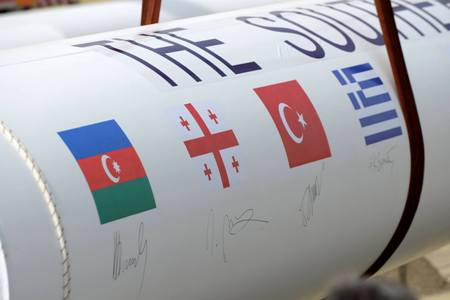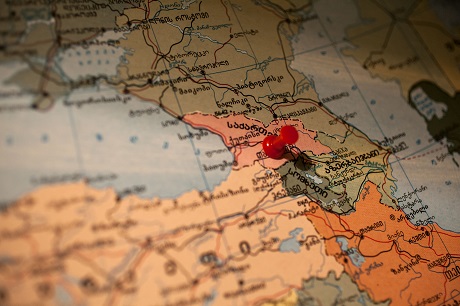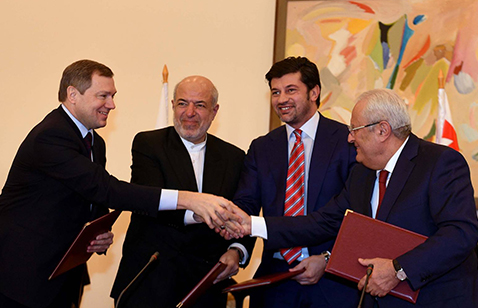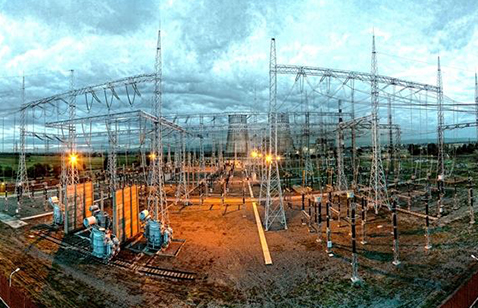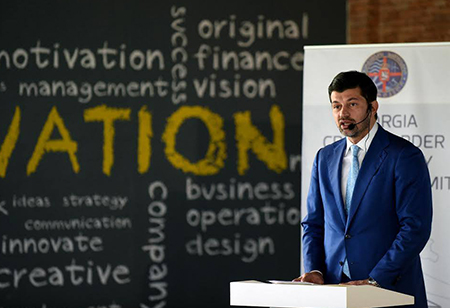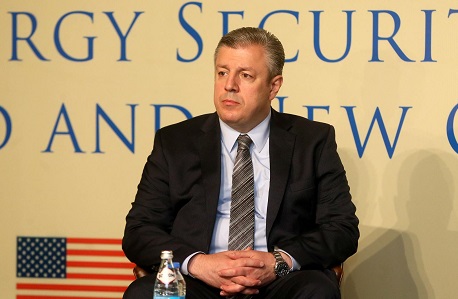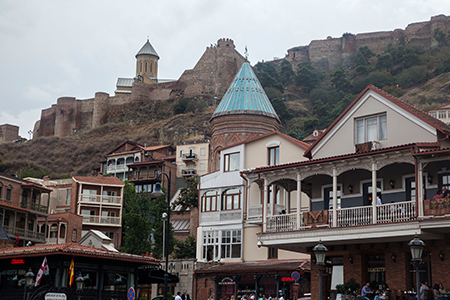Energy Charter Conference: Georgia encourages regional cooperation, seeks investors

More than 100 high officials from 50 countries are gathering in Georgia’s capital Tbilisi to discuss ways to strengthen regional and global energy security, minimise damage to the environment, develop effective energy markets and create a favorable investment climate.
For Georgia, the occasion was a chance to raise awareness of the country’s promising energy sector and attract investors.
Today and tomorrow Tbilisi will host the 26th session of the Energy Charter Conference.
The conference will discuss Georgia’s ambitious initiative to foster electricity cooperation in the South Caucasus through the establishment of two Ministerial Level Task Forces, divided into two groups based on their location in the Caucasus region: (bullet points)
EWEC: East-West Electricity Corridor Task Force, comprising of Azerbaijan, Georgia, Turkey, Turkmenistan; and
NOSEC: North-South Electricity Corridor Task Force, comprising of Armenia, Georgia, Iran, Russia, Turkey.
Today, on day one of the conference, Georgia’s Prime Minister, Energy Minister and Economy Minister delivered speeches. Secretary General of Energy Charter Urban Rusnák and director of the Energy Community Janez KopaÄ also participated in the first part of the event.
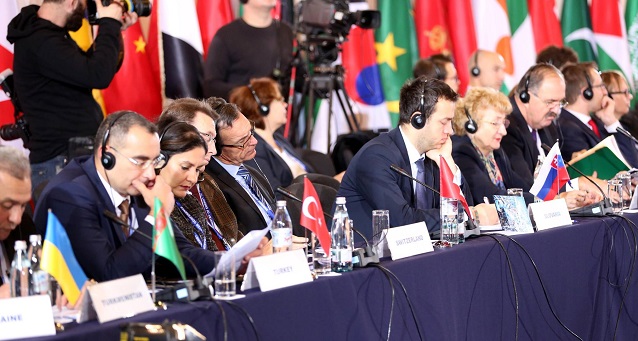
More than 100 high officials from 50 countries attended the Energy Charter Conference. Photo from the PM's office.
Regional cooperation is fundamental to sustainable development
The conference was officially opened this morning by Georgia’s Prime Minister Irakli Garibashvili. He welcomed the guests and said it was impossible to experience high quality energy safety without developing regional cooperation.
Georgia, as the chair country of the Energy Charter, initiated to deepen energy cooperation in the South Caucasus regarding regional electricity trade.
Garibashvili named the Baku-Tbilisi-Supsa, Baku-Tbilisi-Ceyhan and South Caucasus Pipeline projects as "successful examples” of regional cooperation and stressed more could be done for mutual benefit.
Renewable energy the way forward
While delivering his speech Georgia’s Prime Minister also talked about climate change and the necessity to use renewable energy as it provided clean, sustainable energy for the country.
Georgia is rich in hydro resources. We have potential to produce energy from wind, solar, biomass and geothermal waters. This enables us to create an additional energy supply [but it can only be done] with support from local and foreign investments,” Garibashvili said.
Investments in Georgia’s energy sector
In recent years Georgia had taken many promising steps to develop the country’s energy sector, said Georgia’s Economy Minister Dimitry Kumsishvili at the conference.
He noted this would not have been possible without support from international financial institutions and with their aid the country had been able to implement several "important” investments in energy infrastructure.
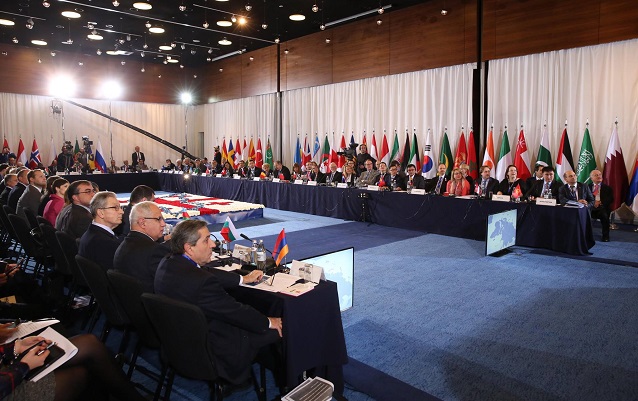
Georgian authorities believed the international forum would facilitate bilateral and multi-lateral cooperation. Photo from the PM's office.
While it was a good start, Kumsishvili said Georgia needed an additional $7 million USD in investments to further develop its energy sector. "This means in the next 10 years we would have about $700 million USD investments [in this sector],” he said.
Kumsishvili noted one of the most important projects implemented in Georgia’s energy sector was the Black Sea Transmission Network Project (BSTN), and he thanked the international financial institutions for their investments. The project outlined rehabilitation and expansion of the existing transmission system to facilitate electric power transmission from Georgia to Turkey, and was financed by the European Investment Bank, the European Bank for Reconstruction and Development, the German development bank KfW and the Development Bank of Austria.
Using this example, Kumsishvili stressed the necessity of foreign investments for Georgia and he reminded the audience about the country’s prosperous investment climate. The Minister stressed Georgia offered investors a "liberal and stable” economic environment, low taxes and preferable conditions for doing business in the country.
He added Georgia was successfully implementing the regulations outlined in the EU-Georgia Association Agreement (AA), and its Deep and Comprehensive Free Trade Area (DCFTA) section.
26th Meeting of the #EnergyCharter Conference - #Tbilisi#Georgiapic.twitter.com/EulV7c4Q36
— Kakha Kaladze (@kakhakala) December 4, 2015
Georgia's Energy Minister Kakha Kaladze posted on his Twitter about the Energy Charter Conference.
Georgia expects membership to Energy Community
Georgia expected to become a member of the Energy Community (EC) – an international organisation that dealt with energy policy – in September 2016.
I am sure in the future we will be able to integrate into the European Union’s energy space. Georgia has already started negotiations with the Energy Community in this regard. We hope very soon Georgia will become a member of the organisation,” Garibashvili said.
What does Georgia expect from the Energy Charter Conference?
Georgia’s Prime Minister, Economy Minister and Energy Minister all hoped this conference will encourage investors to invest in Georgia’s energy sector. The leaders believed the international forum would facilitate bilateral and multi-lateral cooperation and facilitate efforts to develop regional cooperation in the energy sector.
Furthermore, the Georgian officials believed the conference would contribute to raising Georgia’s awareness as a country rich in various energy resources that were yet to be utilised.
 Tweet
Tweet  Share
Share
